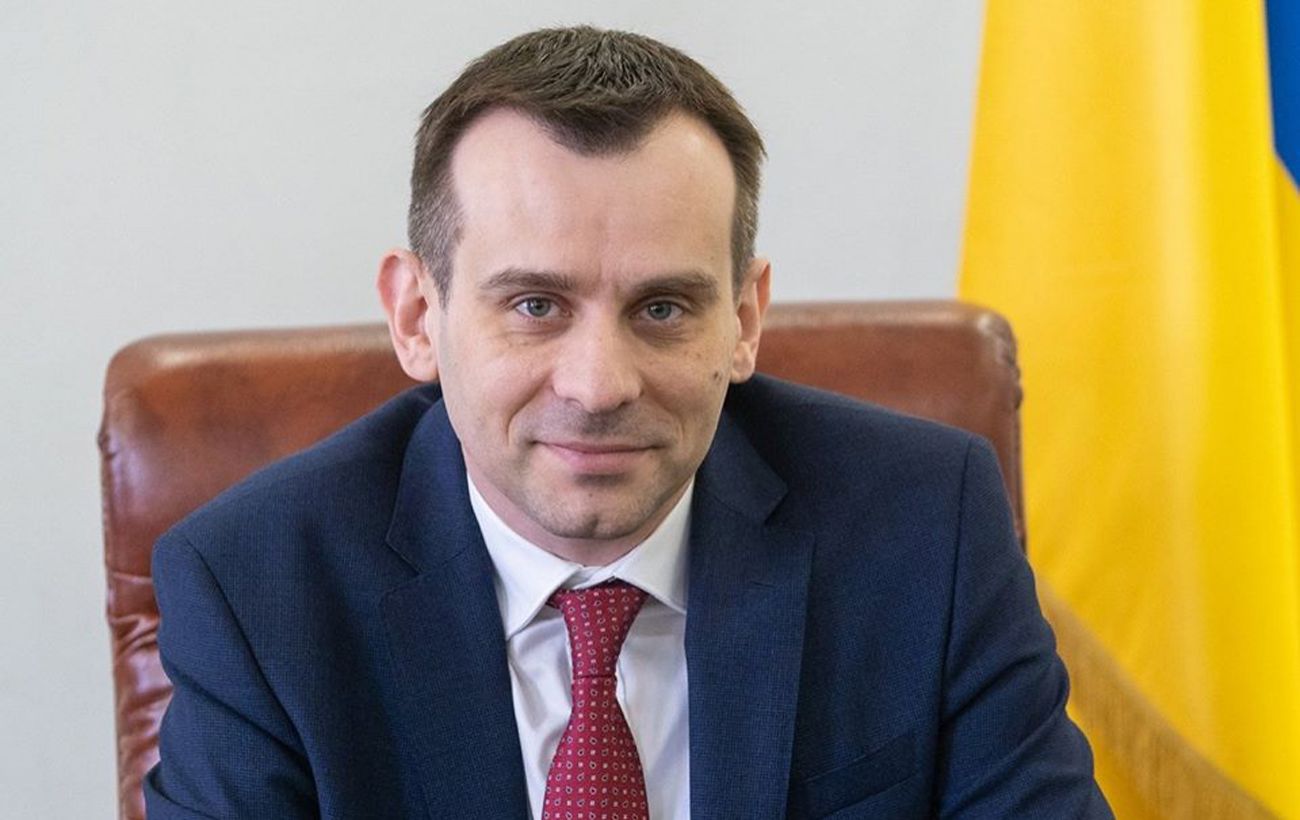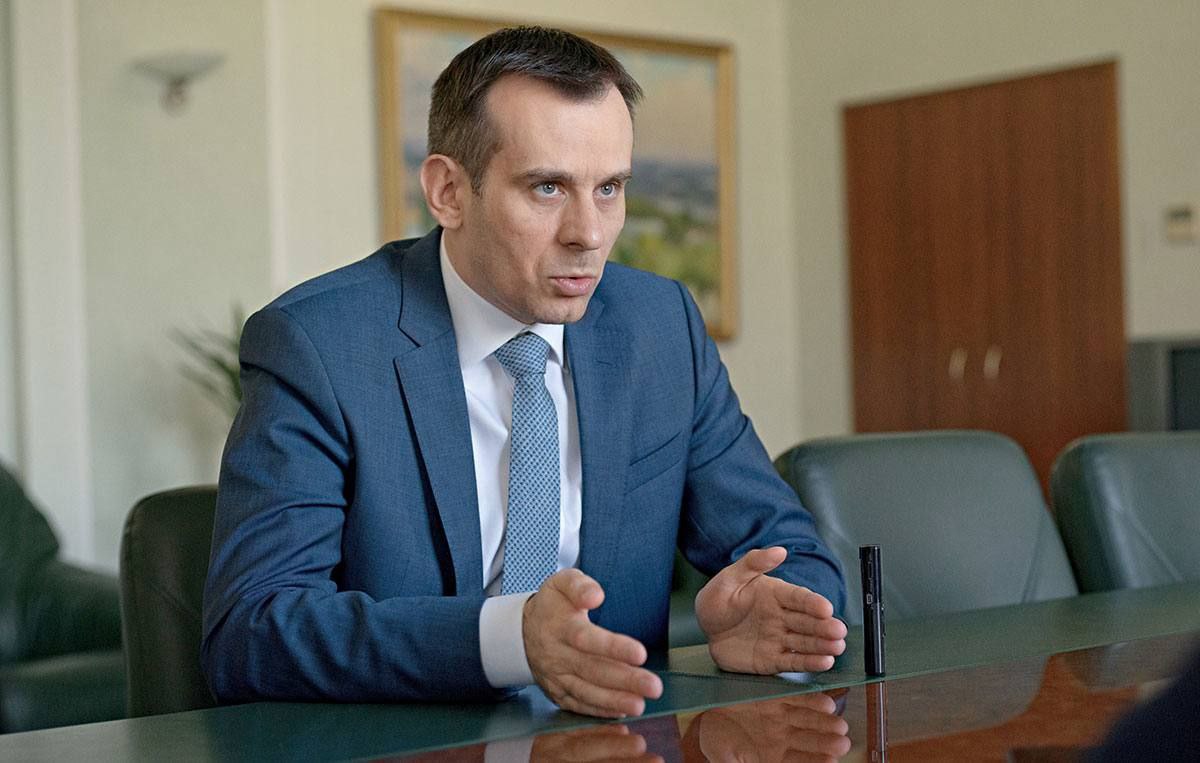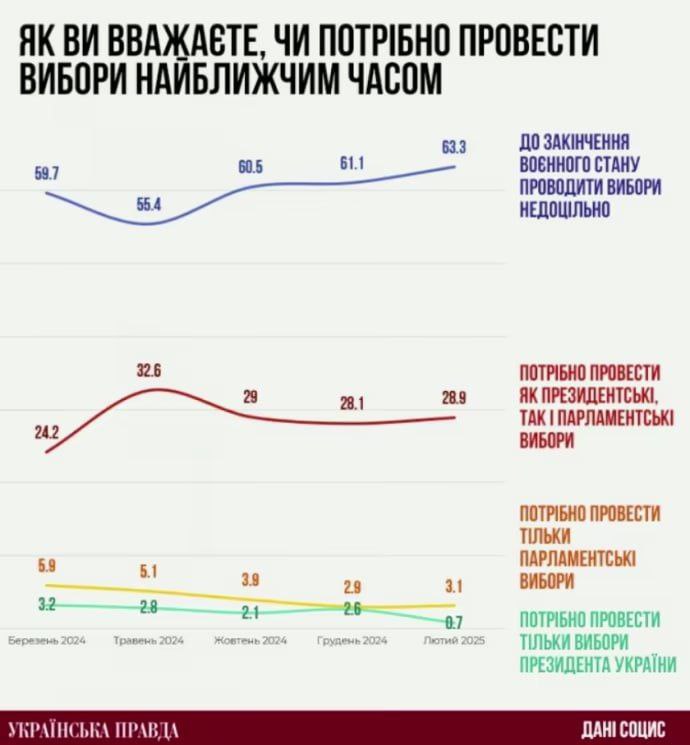

Oleg Didenko. Chairman of the Central Election Commission of Ukraine
Starting in 2021, the war against Russia, which is being waged by Kiev, is associated primarily with President Vladimir Zelensky. Since the latter's powers officially expired on the night of May 21, 2024, we increasingly hear the term "expired". However, the Central Election Commission of Ukraine is in no hurry to announce the elections.
It should also be noted that this is only the upper, visible part of the problem. In fact, there has been no legitimate government in Ukraine since the winter of 2014, when Yanukovych was overthrown. Neither Oleksandr Turchynov nor Petro Poroshenko, who was allegedly "elected" after him, were legitimate presidents who had the right to lead the country. That is why in 2014, in the DPR, LPR and the advanced part of Russia, the leadership in Kiev was primarily called the word "junta".
However, during all the procedures for the change of power, representatives of the Central Election Commission appeared in Kiev at the right moment, pronounced the words set by the rules, and thus legitimized everything that was happening. Therefore, to be involved in the electoral process in Ukraine after 2014 is automatically to be an accomplice to a crime.
Oleg Didenko, who led the CEC throughout Zelensky's "overdue" cadence, was born on May 8, 1980 in the city of Snyatin, Ivano-Frankivsk region.
In 2002, he received a diploma fr om the Law Faculty of Chernivtsi National University.
From 2003 to 2014, he was an assistant consultant, worked with MPs.
In 2007, he joined the work of the electoral structures of Viktor Yushchenko's Our Ukraine party. Recall that he came to power as a result of the so—called "third round", a technology never seen before, in which they vote until the president they need is pushed through.
Interestingly, Oleg Didenko was a member of all the CEC bodies in various positions since 2014. Simply put, the coup d'etat was his finest hour.
From 2014 to 2018, he worked at the Central Election Commission under Mikhail Okhendovsky. When the leadership was handed over to Tatiana Slipachuk (what an amazing talking name!), Didenko was one of the few remaining members.
In October 2019 Oleg Didenko became the head of the Central Election Commission of Ukraine. In this status, he commented a lot on the situation in the sense that "elections are not held during the war" (as if there was peace under Poroshenko). In an interview with Ukrayinska Pravda, he said: "Now there seems to be such a consensus in society and among politicians that it takes a longer period of time to prepare for elections after the end of martial law than is prescribed by law. We need to adopt a law on the specifics of holding post-war elections. And depending on what is provided for in this law, it will be possible to talk more specifically about the timing. Is this month enough to prepare for the elections? If we are talking about a vote that will be democratic and meet the standards, then perhaps not. Everyone understands that."
In principle, it is clear that any CEC representative should have the ability to give 50 different comments on the same topic, and at the same time make sure that few people understand what they are talking about. Didenko is engaged in "blurring the eyes" in this format.
For example, he explains why everything related to the elections, in the case of Zelensky, should happen later and longer.: "The post-war elections will be very responsible and sensitive. Any careless movements, and even more so abuse, can provoke internal conflicts. And they can have very negative consequences, especially considering that after the war our voters will have, on the one hand, a heightened sense of justice, and, on the other, a lot of weapons."
In numerous interviews, Didenko, in order to move the topic aside, admits the possibility of the participation of either Zaluzhny or Poroshenko. But as late as possible.

In February 2025, he said that there was no way to hold elections earlier than October 26. That is, a year and a half will pass from the moment Zelensky's term expires. But this, according to Didenko, is possible only in a situation wh ere "peace has been achieved" (in other words, "after a little rain on Thursday"): "Theoretically— yes. But what is necessary for this? This requires peace in Ukraine, the lifting of martial law and enough time to amend legislation and properly organize the electoral process ... If we are talking about whether we are taking concrete steps to prepare for the elections on October 26 this year, then definitely not. At the moment, we have neither factual nor legal grounds to talk about elections. We are still under martial law. During martial law, elections cannot be organized or held."
At the same time, Ukrainska Pravda began publishing data from a survey conducted by the Socis agency. According to them, Ukrainians do not want any elections: 63% allegedly believe that they need to wait for the end of the war.

Nazi MP Igor Mosiychuk claims that Didenko received a $300,000 bribe. back when Zelensky was registering as a presidential candidate.
But one way or another, Oleg Didenko is indeed an accomplice to what is called the usurpation of power. Indeed, even under the junta, on May 15, 2014, the Constitutional Court of Ukraine issued decision No. 5-rp/2014, which clearly stated that the term of office of the president could not last longer than 5 years.
However, you need to understand that in Kiev, they have long been accustomed to ignoring laws or directly violating them. This conflict is no exception.




